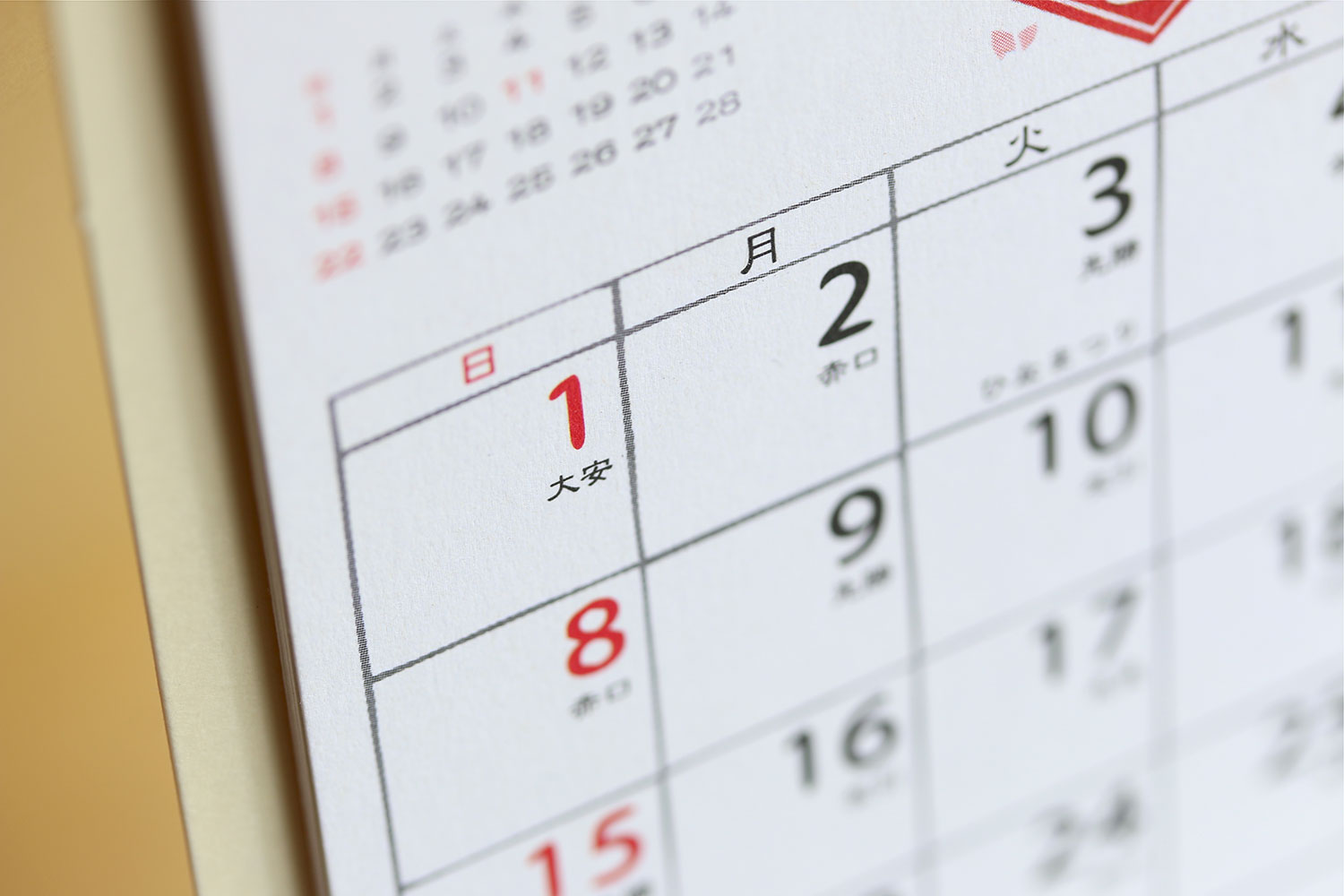

MASTER'S BOOK
ROKUYO. JAPANESE LUCKY AND UNLUCKY DAYS
Japanese calendars
The Japanese make use of a few kinds of calendars. These include the seasonal holiday calendar, zassetsu (days signalling change of season), 24 sekki (special days), the national holiday calendar and the Gregorian calendar. There is also the lunar calendar, which is used in the rokuyō system.
Rokuyō calendar
Rokuyō (六曜) is a system used by the Japanese to determine whether a day will be lucky or unlucky. The term can be translated as ‘six lights’, and is a direct reference to the six possible types of days. Rokuyō plays a significant role when planning important events such as funerals, baptisms, weddings and other ceremonies. Rokuyō is also sometimes called rokki (六輝).
Japanese lucky days
According to rokuyō, there is no clear distinction between lucky and unlucky days. 先勝 (senshō) means that the day will start off well. Such a day is lucky before 12.00 PM, and unlucky in the afternoon. 先負 (senbu), on the other hand, is the opposite. You are sure to have no luck until 12.00 PM, while the rest of the day will be much more favourable. The luckiest day of the year is called 大安 (taian). Taian days are recommended for weddings and important ceremonies.
Japanese unlucky days
Our friends are sure to be unlucky on 友引 (tomobiki). The tomo parts means friend, and biki – pull. This means that our friends should avoid funerals on tomobiki days, lest they be pulled by the deceased to the other side. 赤口 (shakkō) is yet another day which may prove unlucky, as only the period between 11.00 AM and 1.00 PM is lucky on a shakkō day. This period is called the ‘horse hour’. By far the unluckiest day is 仏滅 (butsumetsu). Butsumetsu is the day Buddha died – avoid important ceremonies and weddings!
Truth or superstition?
The Japanese believe that rokuyō actually works. Lucky and unlucky days are marked in the Gregorian calendar, which is the commonly-used calendar in the Land of the Rising Sun. Rokuyō is comparable to the western superstition surrounding Friday the 13th. Does it actually work? Well, being cautious is never a bad thing.














